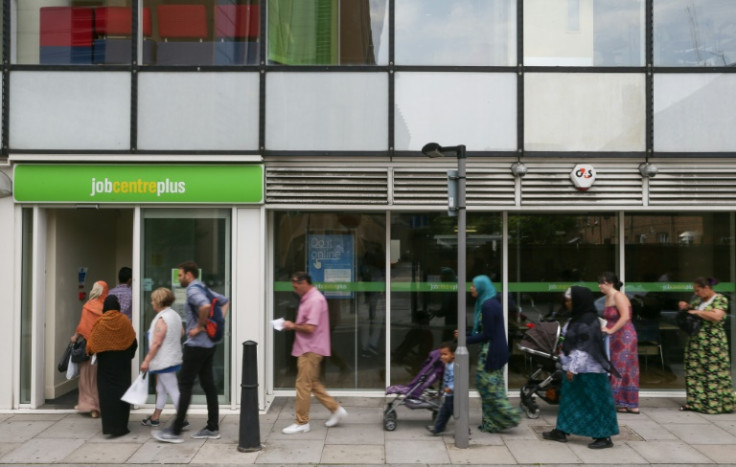UK Job Market Gloom: Jobless Man Rejected In 5,000 Applications - And He Is Not Alone
The distressing search for work left Emery hospitalised in June after a mental health crisis.

A British jobseeker has revealed the brutal reality of the UK's shrinking job market after submitting more than 5,000 applications in two years and receiving nothing but rejection. His story is bringing forward the struggles of thousands across the country as unemployment surges to its highest level in four years.
Joe Emery, 43, lost his copywriting role at Virgin Media O2 in August 2023. Since then, the Midlands-based writer has applied for thousands of positions across job sites, only to find himself competing against hundreds of applicants for each vacancy. The constant rejections, he says, have taken a devastating toll.
'Life, social life, finances destroyed, mental health destroyed,' he told LBC. 'I ended up in a psychiatric unit, my confidence hanging in there. Panic attacks so bad I couldn't breathe. My hair fell out in clumps, I ground a tooth so hard I made a hole in it.'
A System Under Strain
Emery's case underscores a broader crisis in the UK labour market. According to the House of Commons Library, 1.67 million people were unemployed between April and June 2025, an increase of more than 200,000 compared with the previous year.

The national unemployment rate has now risen to 4.7%, the highest since 2021. Youth unemployment is particularly severe, with more than 634,000 people aged 16 to 24 out of work, a rate of 14.1%.
Meanwhile, vacancies are also shrinking at a rapid pace. In June 2025, job openings were down by 145,000 compared with a year earlier, leaving fewer opportunities for an expanding pool of job seekers. Official figures now show there are 2.3 unemployed people for every vacancy, compared to 1.7 before the pandemic.
For Emery, that has meant routinely facing 500 applicants for a single role. 'I've just been constant applying, constant pitching, knocking on doors, hoping something will break,' he said. 'But there's just not enough jobs around and the market is flooded with candidates.'
The Human Cost of Unemployment
The distressing search for work left Emery hospitalised in June after a mental health crisis. He says he has survived on 'scraps' of freelance assignments, with family and friends providing crucial support.

He has also criticised the government's welfare system, describing Jobseeker's Allowance as a 'pitiful amount of money' that fails to sustain those in long-term unemployment.
'There needs to be more help,' he added. 'I've received no support from the government to help me get back into work.'
AI and the Future of Work
Beyond the current shortage of jobs, Emery fears the rise of artificial intelligence will displace even more workers in the years ahead, which is a concern echoed by several economists.
'People will be displaced by AI and I can't see any plans in place that the government are going to help these people,' he said. 'Every business still needs a human copywriter. Words sell, and even if businesses are getting AI content, it's nothing without a copywriter overseeing it.'
Emery's Struggle Is Not An Isolated One
Experts warn that Emery's plight is far from unique. Researchers note that since 2023, the UK labour market has been marked by declining vacancies, automation pressures, and rising living costs that make unemployment even harder to endure.

While some industries, such as healthcare and tech, continue to hire, many others remain stagnant, leaving professionals from mid-level roles to entry-level graduates struggling to secure stable employment.
Joe Emery's 5,000 rejections illustrate more than one man's hardship; they highlight a wider decline in the UK job market, one that shows no signs of reversing.
With unemployment rising, vacancies shrinking, and fears of AI-driven displacement looming, Emery's experience is a stark reminder that Britain's employment crisis is not just statistical, but deeply human.
© Copyright IBTimes 2025. All rights reserved.




















